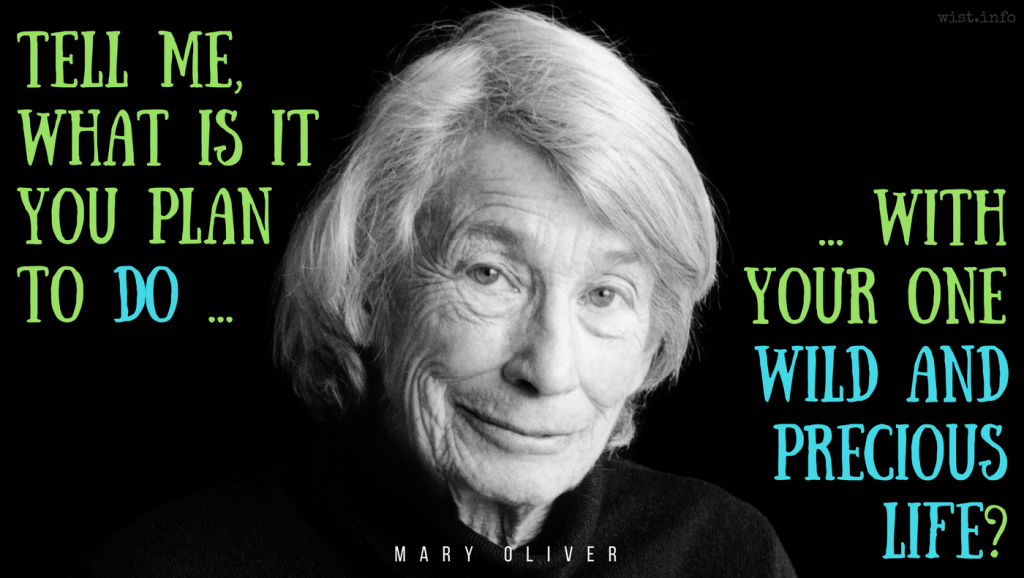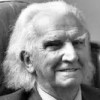A shrewd man has to arrange his interests in order of importance and deal with them one by one; but often our greed upsets this order and makes us run after so many things at once that through over-anxiety to have the trivial we miss the most important.
[Un habile homme doit régler le rang de ses intérêts et les conduire chacun dans son ordre. Notre avidité le trouble souvent en nous faisant courir à tant de choses à la fois que, pour désirer trop les moins importantes, on manque les plus considérables.]
François VI, duc de La Rochefoucauld (1613-1680) French epigrammatist, memoirist, noble
Réflexions ou sentences et maximes morales [Reflections; or Sentences and Moral Maxims], ¶66 (1665-1678) [tr. Tancock (1959)]
(Source)
Present in the first, 1665 edition in a slightly longer form:
Un habile homme doit savoir régler le rang de ses intérêts et les conduire chacun dans son ordre. Notre avidité le trouble souvent en nous faisant courir à tant de choses à la fois que, pour désirer trop les moins importantes, nous ne les faisons pas assez servir à obtenir les plus considérables.
(Source (French)). Alternate translations:
In this the prudent man is distinguishable from the imprudent, that he regulates his interests, and directs them to the prosecution of his designs each in their order. Our earnestness does many times raise a disturbance in them, by hurrying us after a hundred things at once. Thence it proceeds, that out of an excessive desire of the less important, we do not what is requisite for the attainment of the most considerable.
[tr. Davies (1669), ¶165]
A wise Man should order his Designs, and set all his Interests in their proper places. This Order is often disturbed by a foolish greediness, which, while it puts us upon pursuing several things at once, makes us eager for matters of less consideration; and while we grasp at trifles, we let go things of greater Value.
[tr. Stanhope (1694), ¶67]
An able man will arrange his interests, and conduct each in its proper order. Our greediness often hurts us, by making us prosecute so many things at once; by too earnestly desiring the less considerable, we lose the more important.
[pub. Donaldson (1783), ¶205; ed. Lepoittevin-Lacroix (1797), ¶65]
An able man will arrange his respective interests;, and conduct each in its proper order. Ambition is often injurious, by tempting us to prosecute too much at once. By earnestly desiring the less considerable, we lose the more important.
[ed. Carville (1835), ¶473]
A clever man should regulate his interests, and place them in proper order. Our avidity often deranges them by inducing us to undertake too many things at once; and by grasping at minor objects, we lose our hold of more important ones.
[ed. Gowens (1851), ¶67]
A clever man ought to so regulate his interests that each will fall in due order. Our greediness so often troubles us, making us run after so many things at the same time, that while we too eagerly look after the least we miss the greatest.
[tr. Bund/Friswell (1871)]
A wise man co-ordinates his interests, and develops them according to their merits. Cupidity defeats its own ends by following so many at once that in our greed for trifles we lose sight of important matters.
[tr. Heard (1917)]
A clever man will know how to range his interests, and will pursue each according to its merits. Our greed, however, will often confuse our method; for we run after so many things at once that we frequently miss what is of importance in pursuit of what is negligible.
[tr. FitzGibbon (1957)]
Clever men should arrange their desires in the proper order and seek each in turn. In our eagerness we often attempt too many things at once, and by striving too much after the small ones we lose the big.
[tr. Kronenberger (1959)]
A wise man ought to arrange his interests in their true order of importance. Our greed often disturbs this order by making us pursue so many things at once that, for too much desiring the least important, we miss those that are most so.
[tr. Whichello (2016)]
Quotations about:
planning
Note not all quotations have been tagged, so Search may find additional quotes on this topic.
In the fields of observation, chance favors only the prepared mind.
[Dans les champs de l’observation, le hasard ne favorise que les espirits préparés.]
Louis Pasteur (1822-1895) French chemist, pharmacist, microbiologist
Speech, as new Dean of Science, University of Lille, France (1854-12-07)
(Source)
Often misattributed to Ansel Adams. It was, though, Adams' favorite aphorism, which he usually paraphrased as to "Chance favors the prepared mind."
For the happiest life, rigorously plan your days, leave your nights open to chance.
Mignon McLaughlin (1913-1983) American journalist and author
The Second Neurotic’s Notebook, ch. 4 (1966)
(Source)
Variant: "For the happiest life, days should be rigorously planned, nights left open to chance."
It may be that we have become so feckless as a people that we no longer care how things do work, but only what kind of quick, easy outer impression they give. If so, there is little hope for our cities or probably for much else in our society. But I do not think this is so.
Jane Jacobs (1916-2006) American-Canadian journalist, author, urban theorist, activist
The Death and Life of Great American Cities, Introduction (1961)
(Source)
And why carry out one’s projects, since the project is sufficient pleasure in itself?
[Et à quoi bon exécuter des projets, puisque le projet est en lui-même une jouissance suffisante?]
Charles Baudelaire (1821-1867) French poet, essayist, art critic
Le Spleen de Paris (Petits Poèmes en Prose), No. 24 “Projects [Les Projets],” final words (1869) [tr. Varèse (1970)]
(Source)
(Source (French)). Alternate translations:
And what is the good of carrying out a project, when the project itself gives me pleasure enough?
[tr. Hamburger (1946)]
And what good is it to carry out plans, since planning itself is a sufficient delight?
[tr. Kaplan (1989)]
And what good would it do to execute such plans, since planning is in itself sufficient enjoyment?
[tr. Waldrop (2009)]
What good is it to accomplish projects, when the project itself is enjoyment enough?
[Various]
It now only remains for me to say in conclusion: Be a fearless cook! Try out new ideas and new recipes, but always buy the freshest and finest of ingredients, whatever they may be. Furnish your kitchen with the most solid and workmanlike equipment you can find. Keep your knives ever sharp and — toujours bon appetit!
Julia Child (1912-2004) American chef and writer
Julia Child’s Kitchen, Introduction (1975)
(Source)
But the greatest undertakings should not be overly pondered, lest contemplation of difficulties too clearly foreseen appall you.
[Los grandes empeños aun no se han de pensar, basta ofrecerse, porque la dificultad, advertida, no ocasione el reparo.]
Baltasar Gracián y Morales (1601-1658) Spanish Jesuit priest, writer, philosopher
The Art of Worldly Wisdom [Oráculo Manual y Arte de Prudencia], § 204 (1647) [tr. Fischer (1937)]
(Source)
(Source (Spanish)). Alternate translations:
As to great enterprizes, we must not stand reasoning, it is enough that we embrace them when they present, lest the consideration of their difficulty make us abandon the attempt.
[Flesher ed. (1685)]
Great undertakings are not to be brooded over, lest their difficulty when seen causes despair.
[tr. Jacobs (1892)]
In moments of great danger, don't even think, simply act. Don't dwell on the difficulties.
[tr. Maurer (1992)]
What are the choices that we must make if we are now to succeed, and not to fail? […] Two types of choices seem to me to have been crucial to tipping their outcomes towards success or failure: long-term planning, and willingness to reconsider core values. On reflection, we can also recognize the crucial role of these same two choices for the outcomes of our individual lives.
One of those choices has depended on the courage to practice long-term thinking, and to make bold, courageous, anticipatory decisions at a time when problems have become perceptible but before they have reached crisis proportions. […] The other crucial choice illuminated by the past involves the courage to make painful decisions about values. Which of the values that formerly served a society well can continue to be maintained under new changed circumstances? Which of these treasured values must instead be jettisoned and replaced with different approaches?
Jared Diamond (b. 1937) American geographer, historian, ornithologist, author
Collapse: How Societies Choose to Fail or Succeed, ch. 16 “The World as a Polder” (2005)
(Source)
I think we’d like life to be a train. And you get on and pick a destination and get off. And it turns out to be a sailboat. And everyday, you have to see where the wind is and check the currents and see if there’s anybody else on the boat you can help out. But it is a sailboat ride. And the weather changes, and the currents change, and the wind changes. It’s not a train ride. That’s the hardest thing I’ve had to accept in my life. I just thought I had to pick the right train.
Barbara Brown Taylor (b. 1951) American minister, academic, author
Super Soul Sunday, s. 5, ep. 522, “Why Life Is Like a Sailboat Ride,” Oprah Winfrey Network (9 Nov 2014)
(Source)
Starts at 0:48 in the source video. Usually just rendered down as "I think we'd like life to be a train ... but it turns out to be a sailboat."
Men use up their lives in heart-breaking political struggles, or get themselves killed in civil wars, or tortured in the secret prisons of the Gestapo, not in order to establish some central-heated, air-conditioned, strip-lighted Paradise, but because they want a world in which human beings love one another instead of swindling and murdering one another. And they want that world as a first step. Where they go from there is not so certain, and the attempt to foresee it in detail merely confuses the issue.
George Orwell (1903-1950) English writer [pseud. of Eric Arthur Blair]
“Can Socialists Be Happy?” Tribune (20 Dec 1943) [as John Freeman]
(Source)
“We canna just rush in, ye ken.”
A big bearded Feegle raised his hand. “Point ‘o order, Big Man. Ye can just rush in. We always just rush in.”
“Aye, Big Yan, point well made. But ye gotta know where ye’re just gonna rush in. Ye cannae just rush in anywhere. It looks bad, havin’ to rush oout again straight awa’.”
Y2K was a real end-of-civilization problem. And the people who could deal with it treated it as such, working flat-out on disaster management for the last year-long countdown. With the result that the end-of-the-world scenario didn’t happen … causing everyone not directly involved to conclude that it was a false alarm.
Recently I asked three corporate executives what decisions they had made in the last year that they would not have made were it not for their it not for their corporate plans. All had difficulty in identifying one such decision. Since each of their plans were marked “secret” or “confidential,” I asked them how their competitors might benefit from the possession of their plans. Each answered with embarrassment that their competitors would not benefit. Yet these executives were strong advocates of corporate planning.
Don’t judge each day by the harvest you reap, but by the seeds you plant.
Robert Louis Stevenson (1850-1894) Scottish essayist, novelist, poet
(Spurious)
(Source)
Frequently attributed to Stevenson, but not found in his works.
There’s not a living human being who doesn’t need luck. You need luck every time you give a concert. You worry about weather and transportation. Trains and planes are sometimes late; taxis have been known to break down. Then, at the hall, you worry that a string might snap or the lights fail, or that a page-turner might flip over two pages at once.
Jascha Heifetz (1901-1987) Lithuanian-American violinist
(Unsourced)
Quoted on his official web page.
Yet for a long time mortal men have discussed the question whether success in arms depends more on strength of body or excellence of mind; for before you begin, deliberation is necessary, when you have deliberated, prompt action. Thus each of these, being incomplete of itself, requires the other’s aid.
[Sed diu magnum inter mortalis certamen fuit vine corporis an virtute animi res militaris magis procederet. Nam et prius quam incipias, consulto, et ubi consulueris, mature facto opus est. Ita utrumque per se indigens alterum alterius auxilio eget.]
Sallust (c. 86-35 BC) Roman historian and politician [Gaius Sallustius Crispus]
Bellum Catilinae [The War of Catiline; The Conspiracy of Catiline], ch. 1, sent. 5-7 [tr. Rolfe (1931)]
(Source)
Original Latin. Alt. trans.:
"But a just estimate of our mental and bodily faculties was not easily made. Which of them was most conducive to the success of military operations, was in former times a question much agitated, and long undecided. It is evident, however, that before the undertaking of a warlike enterprise, judgment is required to concert and plan the necessary measures; vigor in execution is equally necessary. The powers of man, in their separate functions feeble and ineffectual, demand each other's aid, and flourish by mutual assistance." [tr. Murphy (1807)]
"It has, however, been a great and long debate, whether success in war is most owing to bodily strength or mental abilities: for, as counsel is necessary before we enter on action, after measures are duly concerted, speedy execution is equally necessary; so that neither of these being sufficient singly, they prevail only by the assistance of each other." [tr. Rose (1831)]
"But there has been for a long time a great debate amongst mortals, whether the science of war advanced more by the strength of body or by the abilities of the mind. For both before you begin there is need of counsel; and when you have counselled, there is need of vigorous execution. So whilst both by themselves are defective, the one is strengthened by the assistance of the other." [Source (1841)]
"Yet it was long a subject of dispute among mankind, whether military efforts were more advanced by strength of body, or by force of intellect. For, in affairs of war, it is necessary to plan before beginning to act, and, after planning, to act with promptitude and vigor. Thus, each being insufficient of itself, the one requires the assistance of the other." [tr. Watson (1867)]
"Not it was long hotly contested among men whether military success was more advanced by mental ability or by bodily strength, for what we need is deliberation before we begin, and after deliberation, then well-timed action; either of itself is deficient and lacks the other's help." [tr. Pollard (1882)]
"Yet for a long time there was considerable dispute amongst mortals as to whether it was through the power of the body or the prowess of the mind that military affairs made greater progress. For, before you begin, deliberation is necessary, and, when you have deliberated, speedy action: hence each element, deficient on its own, requires the help of the other." [tr. Woodman (2007)]
I tell this story to illustrate the truth of the statement I heard long ago in the Army: Plans are worthless, but planning is everything.
Dwight David Eisenhower (1890-1969) American general, US President (1953-61)
Speech, National Defense Executive Reserve Conference (14 Nov 1957)
Quoted in R. Nixon, Six Crises, "Krushchev" (1962) as "In preparing for battle I have always found that plans are useless, but planning is indispensable." Sometimes paraphrased as "Plans are nothing; planning is everything."
The tactical result of an engagement forms the base for new strategic decisions because victory or defeat in a battle changes the situation to such a degree that no human acumen is able to see beyond the first battle. In this sense one should understand Napoleon’s saying: “I have never had a plan of operations.” Therefore no plan of operations extends with any certainty beyond the first contact with the main hostile force.
I used to say that, as Solicitor General, I made three arguments in every case. First came the one I had planned — as I thought, logical, coherent, complete. Second was the one actually presented — interrupted, incoherent, disjointed, disappointing. The third was the utterly devastating argument that I thought of after going to bed that night.
Robert H. Jackson (1892-1954) US Supreme Court Justice (1941-54), lawyer, jurist, politician
“Advocacy Before the Supreme Court,” Morrison Lecture, California State Bar (23 Aug 1951)
(Source)
Reprinted in the Cornell Law Quarterly (Fall 1951). Legal citation "Advocacy Before the Supreme Court," 37 A.B.A.J. 801, 803 (1951).
Why did we wait for any thing? — why not seize the pleasure at once? — How often is happiness destroyed by preparation, foolish preparation!
Jane Austen (1775-1817) English author
Emma, Vol. 2, ch. 12 (ch. 30) [Frank Churchill] (1816)
(Source)
Never build a dungeon you wouldn’t be happy to spend the night in yourself. The world would be a happier place if more people remembered that.
Terry Pratchett (1948-2015) English author
Guards! Guards! [Lord Vetinari] (1989)
(Source)
Said while imprisoned in the dungeon. A few scenes later, he adds, to himself, Never build a dungeon you couldn’t get out of, while escaping.
When we are planning for posterity, we ought to remember that virtue is not hereditary.
Thomas Paine (1737-1809) American political philosopher and writer
Common Sense (14 Feb 1776)
Source essay
The pillow is a silent Sibyl, and to sleep upon an enterprise avails more than to be sleepless under it.
[Es la almohada Sibila muda, y el dormir sobre los puntos vale más que el desvelarse debajo de ellos.]
Baltasar Gracián y Morales (1601-1658) Spanish Jesuit priest, writer, philosopher
The Art of Worldly Wisdom [Oráculo Manual y Arte de Prudencia], § 151 (1647) [tr. Fischer (1937)]
(Source)
(Source (Spanish)). Alternate translations:
The Pillow is a dumb Sibylle. To sleep upon a thing that is to be done, is better than to be awaked by a thing already done.
[Flesher ed. (1685)]
The pillow is a silent Sibyl, and it is better to sleep on things beforehand than lie awake about them afterwards.
[tr. Jacobs (1892)]
The pillow is a tongueless sibyl, and it is better to sleep on something than to lie awake when things are on top of you.
[tr. Maurer (1992)]


































